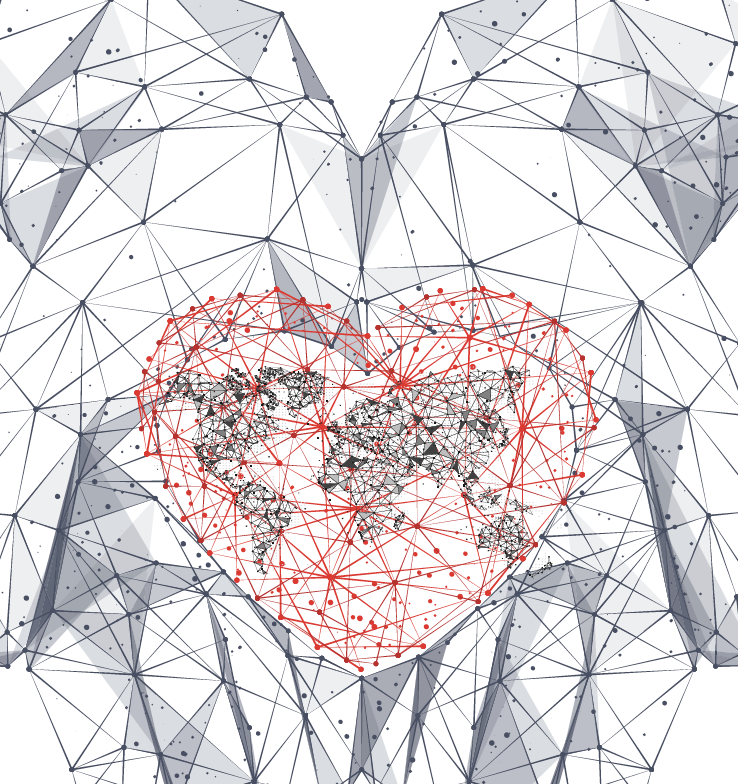From pandemic to recovery
For the European Union, health is a global common good. High-income countries have a special responsibility to the health of all regions of the world – a responsibility reflected in political choices, programmes and initiatives that converge on health for all
Europe has been hit hard by COVID-19. Our health systems are among the best in the world, yet this crisis has required an unprecedented mobilisation. In the European Union, national governments are in the lead on health policies. But when the greatest health emergency in living memory started to unfold, we all realised that pan-European coordination and cooperation were a must. Only together could we come out of the crisis quicker – and stronger.
Our political choice – as the European Union – has been to take responsibility for our collective health. We have been doing so by taking care of people’s health; by taking care of our planet’s health; by aiming at a vaccine accessible to all continents; and by helping bring the world together against COVID-19.
A vaccine accessible to all continents
On average, it takes a decade to develop a new vaccine. In the fight against COVID-19, the world does not have the luxury of time. This time, speed is a matter of life and death for hundreds of thousands of people.
High-income countries have a special responsibility not only to accelerate the development of a vaccine, but also to make it accessible for all regions of the world. For this reason, together with the World Health Organization and many other partners, the European Union has set up a new collaborative framework, the Access to Covid-19 Tools Accelerator, to step up the development and deployment of vaccines, treatments and tests.
It is important to learn the lessons of this pandemic and prepare for the future. In the EU, we have tabled a new health programme, EU4Health, to boost our resilience and preparedness,
The pandemic poses challenges at unprecedented scale, but it is not the sole public health issue that we need to address. We have to continue caring for the others as well. Take cancer, a condition that affects millions of new patients in Europe every year and is preventable in 40% of cases. Yet only 3% of health budgets go into prevention. Promoting prevention and making the most of the potential of e-health can save lives. This is why, just two months into my mandate, I launched a public consultation to shape our Europe’s Beating Cancer Action Plan scheduled by the end of 2020. We will focus on prevention, early diagnosis, vaccination and the use of new technologies in all these fields.
A healthier planet
Beyond care and treatments, a whole series of factors determine our population’s health, notably the air we breathe, the water we drink and the food we eat. This is one of the core ideas behind the European Green Deal that I presented during the first month of
my mandate.
The green transition we are leading will not lose momentum because of the pandemic. On the contrary. Our recovery plan, NextGenerationEU, will invest massively in driving the shift towards a clean, circular and climate neutral economy. The unprecedented NextGenerationEU plan will provide us with an effective lever for a green recovery.
We can only improve human health when we protect and restore nature, as we do with our EU Biodiversity Strategy, and when we recognise the inextricable links between healthy people, healthy societies and healthy planet, as we do with our Farm to Fork Strategy.
To walk the talk, in order to increase European support for health and climate-related research and innovation activities, my Commission has tabled €94.4 billion for our Research and Innovation Investment programme for the 2021–2027 period forHorizon Europe.
The EU’s role as a world leader
In today’s globalised world where climate is global, health is global and pollution is global, the level of carbon dioxide or a virus spotted in one city quickly becomes an issue for every country. Health is a political choice that requires multilateralism and international cooperation. Our neighbour’s weakness can turn into our own weakness. We are well aware that Europe will be safe from this virus only when its neighbours and partners are safe from this virus. To come out stronger after this crisis, we need to think and act on a global scale.
Since the pandemic broke out, the European Commission has led the global response to the crisis. We have immediately allocated additional financial support to the World Health Organization for the fight against COVID-19. In this crisis, we have from the very beginning worked with and cared for our neighbours and partners, from Pristina to Pretoria. We have also innovated and launched a global pledging marathon, the Coronavirus Global Response, to support global cooperation, pool resources and help vulnerable countries strengthen their health systems and recover from the pandemic. This initiative has allowed us to gather €15.9 billion worth of pledges in total.
For the European Union, health is a global common good. Our vision for a healthy planet, and a green and digital recovery, converge on this objective. We are committed to play an active role to help the world protect this common good.












